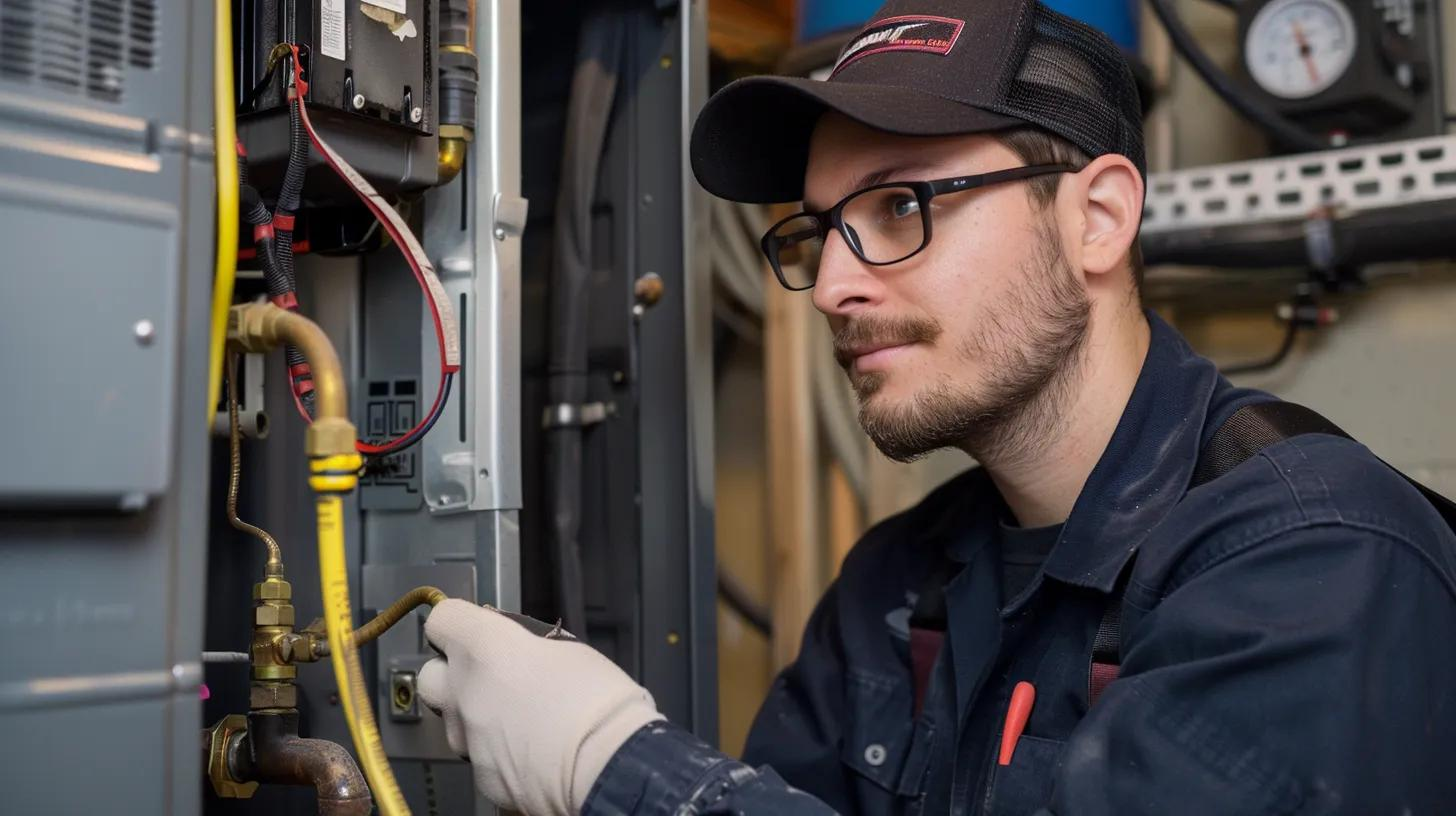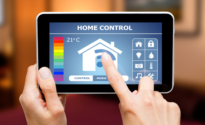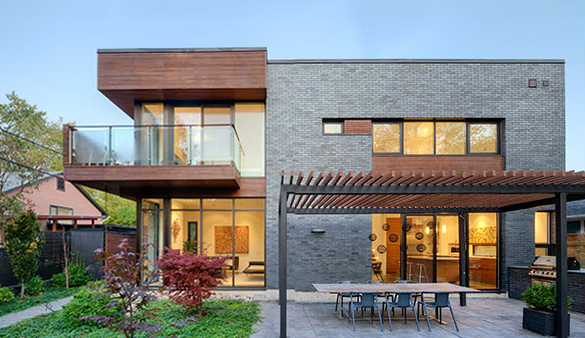Experience Fresh Air Today
Changing your HVAC filter is the cornerstone of maintaining clean air, optimal performance, and long system life in any home or business. Neglecting regular HVAC filter change leads to poor indoor air quality, higher energy bills, and premature breakdowns. This guide explores why filter replacement matters, how often to change filters, signs of a dirty filter, filter types and MERV ratings, DIY versus professional replacement, and exactly what Jormer HVAC’s professional filter change service includes. By understanding these themes—benefits, frequency, indicators, filter options, and service details—you’ll be equipped to breathe easier, save on energy, and protect your HVAC investment.
Why Is Regular HVAC Filter Replacement Essential?
A regular HVAC filter replacement is a preventative maintenance action that improves air quality, boosts energy efficiency, and extends system lifespan by removing airborne contaminants before they circulate. Clean filters trap dust, pollen, and pet dander, preventing clogging of coils and blowers. Consistent filter changes reduce stress on fans and compressors, lowering electricity consumption and minimising wear. This routine maintenance step also safeguards indoor comfort and health while supporting reliable system operation.
How Does a Clean HVAC Filter Improve Indoor Air Quality?
A clean HVAC filter captures particles as small as one micron, removing dust, pollen, mold spores, and pet dander from circulating air. By trapping these pollutants, the filter prevents allergens from accumulating in ducts and living spaces, reducing triggers for asthma or allergy sufferers. This filtration mechanism promotes healthier breathing environments and minimises dust buildup on furniture. Improved air purity directly enhances occupant well-being and creates a fresher indoor atmosphere.
In What Ways Does Filter Replacement Enhance Energy Efficiency?
Replacing a clogged filter reduces airflow resistance, allowing fans to operate at designed speeds with less energy draw. Lower resistance means the blower motor consumes fewer watts to circulate conditioned air through ductwork, translating into energy savings of up to 15 percent. With proper airflow, heat exchange coils reach target temperatures more quickly, shortening run cycles. These efficiency gains lead to measurable reductions in monthly utility bills and carbon footprint.
How Does Changing Filters Extend HVAC System Lifespan?
Regular filter changes prevent dust accumulation on critical components like evaporator coils and blower wheels, avoiding overheating and mechanical strain. Clean filters maintain consistent airflow, reducing cycling frequency and wear on compressors. By keeping heat exchangers free of debris, the system avoids corrosion and refrigerant flow issues. This proactive maintenance practice can add several years of reliable operation, delaying costly replacements and preserving warranty coverage. AC maintenance ensures optimal performance throughout the lifespan of your system.
How Often Should You Change Your HVAC Filter?
Determining HVAC filter change frequency depends on factors like filter type, system usage, indoor air quality needs, and local climate conditions. Standard pleated filters generally require replacement every 1–3 months, whereas higher-efficiency or washable media may last longer. Homes with pets or allergy sufferers often benefit from monthly checks. Seasonal extremes in Copperas Cove, Killeen, and Kempner, TX, may demand more frequent changes during dusty summers or pollen-heavy springs. Establishing a routine inspection schedule ensures timely replacement.
ConditionTypical IntervalReasonNo pets, low usage3 monthsMinimal airborne debris keeps filter capacity intactOne or more pets1–2 monthsIncreased hair and dander require faster filter turnoverAllergy sufferers present1 monthHigher sensitivity to pollen and dust demands frequent changeHeavy system usage (summer)1 monthExtended run times during hot Texas months clog filters faster
What Factors Affect HVAC Filter Change Frequency?
Filter change frequency is influenced by indoor activities and environmental conditions. Pet hair and dander clog filter media quickly, while smokers or heavy cooking can saturate filters with particulates. Allergy seasons heighten pollen levels, necessitating more frequent replacements. High occupancy or commercial operations generate additional dust. Filter type also matters—higher-MERV media trap finer particles but may require checking to ensure airflow remains adequate.
How Do Seasonal Changes Influence Filter Replacement Timing?
Seasonal variations in Texas shape filter maintenance needs. Spring brings pollen storms that overwhelm standard filters, while summer dust and debris from construction can reduce filter life. Fall leaf fall and winter indoor heating introduce different particulates. Adjusting filter checks to coincide with beginning of each season helps manage changing contaminant loads, ensuring your system adapts to external conditions and maintains air quality without undue strain.
What Are the Recommended Filter Change Intervals for Copperas Cove, Killeen, and Kempner, TX?
Residents of Copperas Cove, Killeen, and Kempner typically experience dusty summers and pollen-rich springs. For these areas, a 1-month interval is advisable from March through June, shifting to 2-month intervals during milder fall and winter months. Homes without pets can extend up to 3 months in late autumn and early winter. Business owners with high foot traffic may opt for monthly changes year-round to handle constant air conditioning maintenance.
What Are the Signs That Your HVAC Filter Needs Changing?
Recognising a dirty filter early prevents system inefficiency and health issues. Clogged filters restrict airflow, causing the HVAC unit to work harder and cycle more frequently. Reduced output, uneven room temperatures, and persistent dust on surfaces signal filter saturation. Increased energy bills without changes in thermostat settings often indicate filter-related inefficiency. Detecting these symptoms helps avoid more serious mechanical problems.
How Does Reduced Airflow Indicate a Dirty Filter?
When the blower motor struggles to push air through loaded filter media, airflow drops noticeably at vents. Reduced airflow means rooms take longer to reach set temperatures and may never feel fully conditioned. This strain increases fan run-times and noise levels. Addressing low airflow by replacing the filter restores normal circulation, ensuring balanced comfort and easing load on the system.
What Are Common Indicators Like Increased Dust and Higher Energy Bills?
A surge in dust accumulation around return grilles and on furniture reflects a filter that no longer traps particulates effectively. Homeowners often notice more dusting is required after a filter has passed its useful life. Simultaneously, electric meters register higher consumption as the HVAC system compensates for restricted airflow. Monitoring cleaning frequency and utility bills offers a clear signal that filter replacement is overdue.
Can a Dirty Filter Cause HVAC System Problems or Allergies?
Clogged filters allow contaminants to bypass media and coat coils and duct interiors, fostering mold growth and component corrosion. This condition can trigger system breakdowns such as frozen coils or motor burnout. Meanwhile, poor filtration circulates allergens and irritants, aggravating asthma or respiratory conditions among occupants. Regular filter changes mitigate these risks, preserving system integrity and occupant health.
Which Types of HVAC Filters Are Available and How Do MERV Ratings Affect Performance?
HVAC filters vary by media type and efficiency, with pleated, fibreglass, and HEPA options serving different needs. Pleated polyester or cotton media balances cost and filtration capability. Fibreglass panels are economical but trap larger particles only. HEPA-grade filters capture down to 0.3 micron, delivering hospital-level air purity. MERV (Minimum Efficiency Reporting Value) ratings from 1 to 20 quantify a filter’s ability to capture particles; higher MERV means finer filtration but may increase airflow resistance if not matched to the system.
What Are the Differences Between Pleated, Fibreglass, and HEPA Filters?
Pleated filters use folded media to increase surface area, capturing 65–90 percent of particles down to 1–3 microns. Fibreglass filters trap large particles above 10 microns with low initial cost but limited performance. HEPA filters exceed MERV 17, removing 99.97 percent of particles as small as 0.3 microns. While HEPA delivers superior air quality, professional system upgrades are often required to maintain adequate airflow.
How Does the MERV Rating Measure Filter Effectiveness?
The MERV rating scales filter efficiency based on particle size removal: MERV 1–4 capture 75 percent of particles larger than 10 microns; MERV 8–12 handle 90 percent of 3–10 micron particulates; MERV 13–16 remove 90 percent of 1–3 micron particles; MERV 17–20 (HEPA) exceed 99 percent at 0.3 microns. Higher MERV ratings increase pollutant capture but can restrict airflow if the HVAC system is not designed for dense media.
Which MERV Ratings Are Best for Residential HVAC Systems in Texas?
For most Texas homes, MERV 8–11 filters strike the balance between air quality and airflow. These ratings effectively remove household dust, pollen, and pet dander without overloading standard residential blowers. Allergy-sensitive households may opt for MERV 12–13 but should verify system compatibility to prevent undue pressure on fans and coils. Professional assessment ensures optimal filter selection for local climate demands.
Should You Choose DIY or Professional HVAC Filter Replacement?
DIY filter changes suit homeowners with basic mechanical comfort and time for regular inspections. However, incorrect filter sizing or improper installation can reduce performance and void system warranties. Professional filter replacement services offer precise filter selection, correct fitting, and concurrent system checks. This expert approach ensures both filter integrity and overall HVAC health, maximising efficiency and preventing hidden issues.
Service TypeBenefitConsiderationDIY ReplacementImmediate cost savings on labourRisk of incorrect sizing or improper sealingProfessional ServiceExpert filter fit, system inspection and testingScheduling required; service fee applies
What Are the Advantages of Professional Filter Replacement Services?
Professional filter replacement services by Jormer HVAC include accurate filter sizing, secure installation, and a multi-point system check for airflow, refrigerant levels, and component health. Technicians clear drain lines and inspect electrical connections, uncovering potential issues before they escalate. This holistic service promotes consistent comfort, reliable operation, and prevention of costly breakdowns.
When Is DIY Filter Change Appropriate and What Are the Risks?
DIY filter changes are appropriate for homeowners who can access filter compartments safely and follow manufacturer guidelines precisely. Risks include using the wrong filter thickness or type, failing to seat the filter correctly, and overlooking hidden maintenance needs. Small gaps around a filter frame allow unfiltered air to circulate, diminishing indoor air quality and system efficiency.
How Does Jormer HVAC Ensure Correct Installation and System Checks?
Jormer HVAC technicians validate filter dimensions and MERV rating to match system specifications, ensuring airflow remains within design parameters. During each visit, they inspect coils, clean accessible parts, and perform diagnostic tests on blower performance and thermostat calibration. This thorough process ensures that every filter change also serves as a preventive tune-up for lasting HVAC health.
What Does Jormer HVAC’s Professional Filter Change Service Include?
Jormer HVAC’s professional filter change service combines filter replacement with a comprehensive maintenance inspection to optimise system performance. Each service begins with a filter assessment and selection of the correct media type. After installation, technicians perform airflow measurements, check refrigerant pressures, clear drain lines, and test thermostat response. The service concludes with a maintenance report outlining findings and recommendations for future care.
How Can You Schedule HVAC Filter Replacement in Copperas Cove, Killeen, and Kempner?
To schedule professional filter replacement, simply contact Jormer HVAC via phone or visit their website at . Available appointment slots cover mornings, afternoons, and emergency calls. Service requests are confirmed promptly, with local technicians dispatched to ensure minimal wait times and flexible scheduling tailored to homeowner or business needs.
What Are the Benefits of Choosing Jormer HVAC for Your Filter Maintenance?
Selecting Jormer HVAC delivers local expertise in Copperas Cove, Killeen, and Kempner, backed by a reputation for reliability and transparent service. Technicians arrive in branded vehicles with professional tools, uphold safety protocols, and respect property cleanliness. The company’s heating repair focus means every estimate is straightforward, with no hidden fees and clear recommendations for enhancing comfort and efficiency.
How to Request a Free Estimate or Immediate Assistance?
Homeowners and business owners may request a free estimate by providing basic system details and service preferences through the online form at or by calling Jormer HVAC’s office. Immediate assistance is available for urgent filter and system issues, ensuring rapid response to maintain indoor comfort and air quality without prolonged downtime.
What Are the Most Common Questions About HVAC Filter Changes?
HVAC filter change questions often revolve around timing, consequences of neglect, filter selection, and system impact. Understanding these topics empowers informed decisions that keep systems running smoothly. Below we address the most frequent queries regarding filter intervals, risks of postponed changes, ideal MERV ratings, and how dirty filters affect air conditioning operation.
How Often Should I Change My HVAC Filter?
Most HVAC filters require replacement every 1–3 months, depending on filter quality, occupancy, and environmental factors. Pet owners and allergy sufferers should inspect filters monthly, while homes in mild conditions can extend to 3 months. Establishing a routine based on system performance and air purity needs ensures consistent comfort and energy efficiency.
What Happens If You Don’t Change Your HVAC Filter?
Failing to change the filter allows dust and debris to accumulate on coils and fan blades, reducing heat exchange efficiency and increasing energy consumption. Over time, this strain can cause refrigerant line icing, compressor failure, and airflow blockages. Neglected filters also compromise indoor air quality, circulating allergens and pollutants that aggravate respiratory ailments.
What MERV Rating Should I Use for My HVAC Filter?
For standard residential systems, a MERV 8–11 rating strikes a balance between filtration and airflow. Allergy-sensitive settings may opt for MERV 12–13 with professional evaluation to confirm system compatibility. HEPA-level filtration (MERV 17+) delivers superior air purity but often requires system modifications to maintain proper airflow and efficiency.
Can a Dirty Air Filter Cause AC Problems?
Yes, a dirty air filter restricts airflow, leading to uneven cooling, frozen evaporator coils, and increased compressor workload. These conditions escalate wear on mechanical components, trigger unexpected shutdowns, and shorten equipment lifespan. Regular filter replacement prevents these issues, ensuring reliable air conditioning performance throughout hot Texas summers.
Regular HVAC filter change is a simple yet powerful way to improve air quality, reduce energy costs, and safeguard system longevity. By following recommended intervals, recognising warning signs, choosing the right filter type and MERV rating, and considering professional service from Jormer HVAC, homeowners and business owners in Copperas Cove, Killeen, Kempner, and beyond can enjoy cleaner air and dependable comfort year-round.
Customer Testimonials
See what our customers are saying about their experience with us.

Financing
We offer flexible financing through FTL Finance, making it easy to invest in your home comfort without the upfront stress.

Short Heading Goes Here


Creating a More Comfortable and Smarter Home


